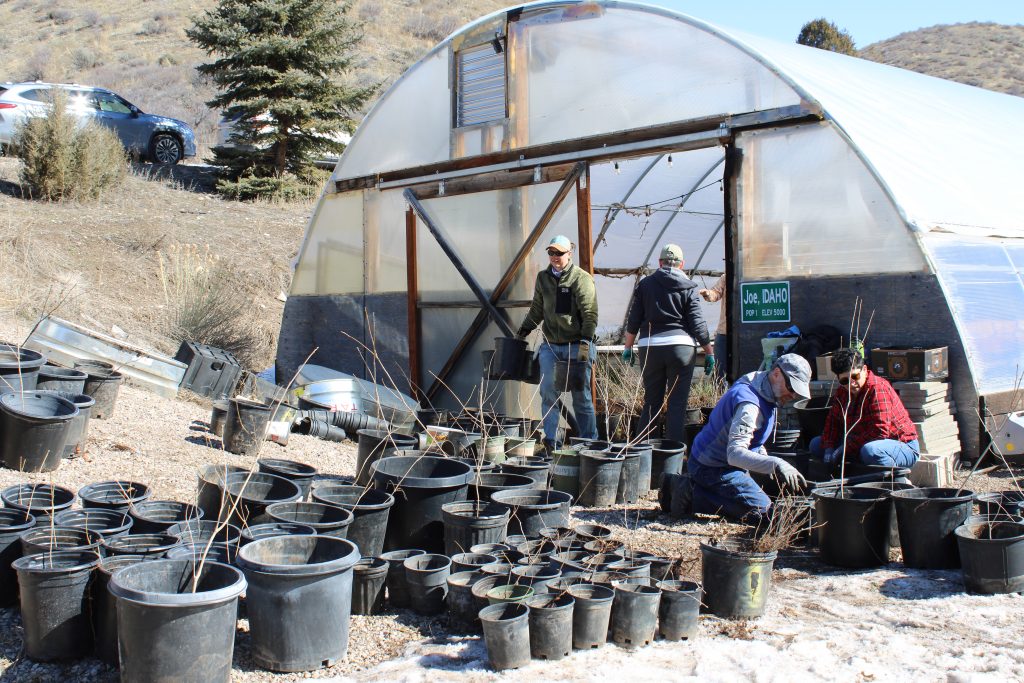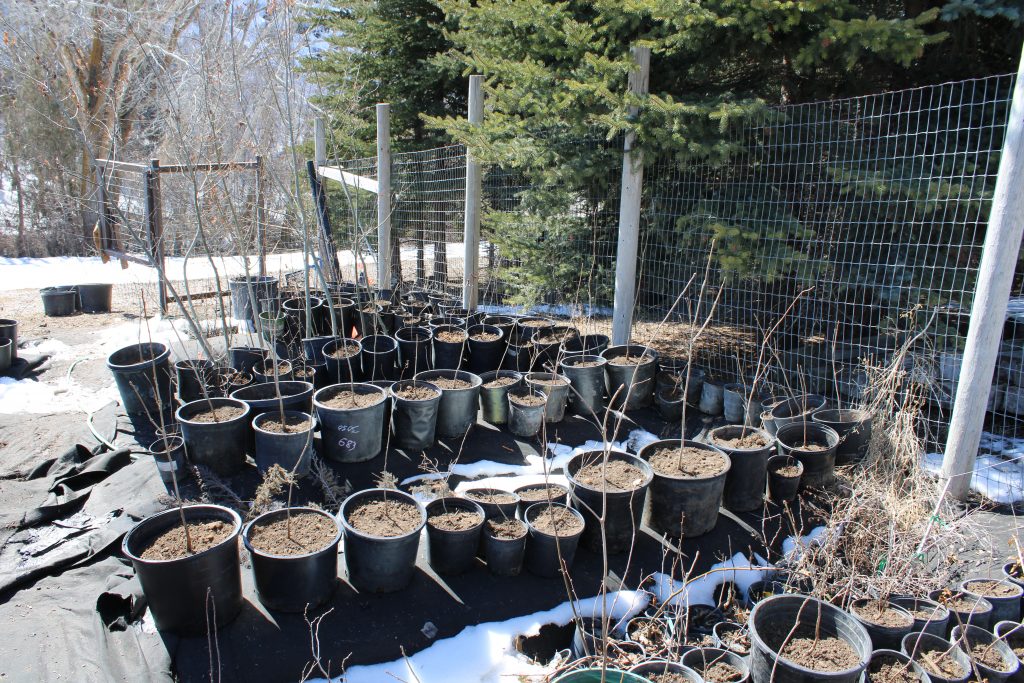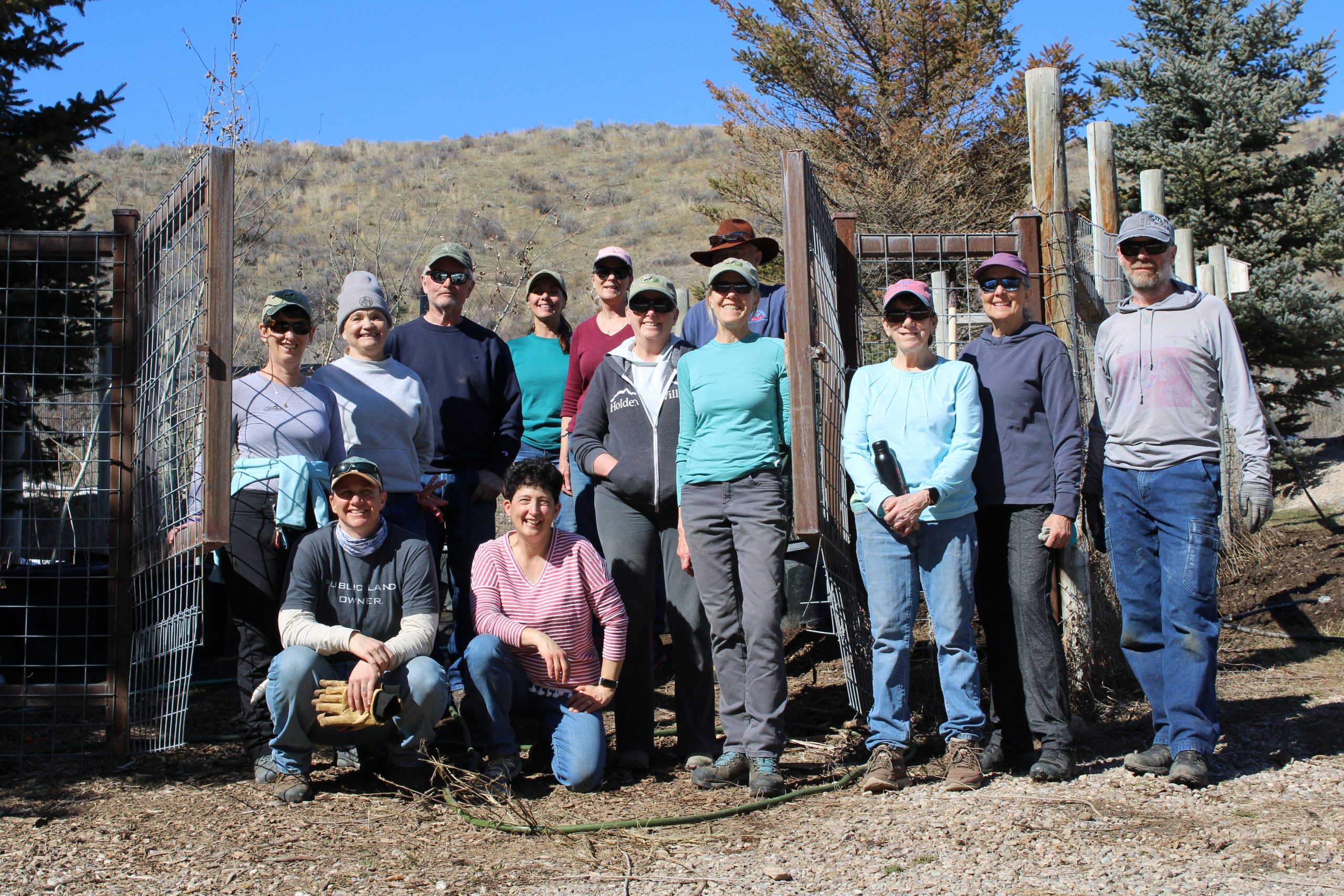NWTF Partners for Wildlife Habitat Restoration in Southeastern Idaho
Community engagement in conservation efforts is vital to fostering investment in our natural lands and wildlife. In southeastern Idaho, the National Wild Turkey Federation Idaho State Chapter, alongside the Idaho Fish and Game and community volunteers, have joined forces to strive towards a better future for the public lands and wildlife in the area.
Over the last 15 years, the partnership between the Idaho NWTF State Chapter and Idaho Fish and Game has been expanding habitat for turkeys and other wildlife in the region. Through pooling funds and involving the community, they have worked towards enhancing overall biodiversity. Over the weekend, volunteers united to showcase their dedication to conservation and community betterment by participating in tree propagation efforts.
Joe Foster, the president of the Idaho NWTF State Chapter, along with numerous volunteers, oversees the operation of a greenhouse and tree yard, supplying trees for Idaho Fish and Game projects throughout the state. These projects, under the management of Idaho Fish and Game, are designed to conserve healthy wildlife habitats across various wildlife management areas while accommodating recreational activities from fishing to big game hunting.
“I try to include anyone with interest,” Foster said. “Leading by example seems to attract plenty of individuals who want to get involved. I was very pleased to see that several biologists attended our local NWTF banquet representing the Idaho Fish and Game, USDA Forest Service and some other non-governmental organizations. That is not typical of a fundraising event in my experience. Folks like to hang with those that get things done.”

Volunteers from the NWTF, Idaho Fish and Game and the High Desert Chapter of Master Naturalists came together to propagate oak and cottonwood trees, gearing up for planting projects this spring. In just one afternoon, volunteers propagated approximately 800 trees and planted almost 300 acorns and walnuts. Bringing together a diverse group of volunteers, the day was a successful step towards the larger goal of habitat management on local WMAs.
The High Desert Chapter of Master Naturalists is a program offering community members the chance to volunteer in conservation endeavors across southeast Idaho while deepening their understanding of the region's natural world. As part of this program, Foster leads a class on wild turkeys and extends invitations to the chapter to participate in propagation and planting activities.
The 50-foot by 50-foot tree yard, originally constructed with assistance from Eagle Scout projects, has facilitated the propagation of diverse tree species over the years. Locally sourced cottonwood cuttings, quaking aspens and pines are commonly propagated, while acorns and walnuts are also included in the planting efforts.
Volunteers initiate the tree-planting process by staging young plants in the tree yard, where they can be carefully monitored and acclimatized to the specific soil and climate conditions of southeastern Idaho before going out on WMA habitat projects.
“Most new trees and shrubs used on projects spend some staging time in the tree yard,” Foster said. “The capacity is about 500 pots, but we have been over-achieving to the tune of about 1,000 plants per year with over 10,000 planted in the past 10 years.”

In April, Foster and his team of volunteers will revisit the tree yard to transport a variety of trees and shrubs to the Portneuf Wildlife Management Area, a nearby 3,950-acre parcel of public land that provides vital habitat for wild turkeys, upland birds and is a wintering range for mule deer.
Trees and shrubs are crucial components of wild turkey habitat, offering essential resources such as food, nesting sites, concealment and shelter for turkeys as well as numerous other wildlife species. However, in southeastern Idaho, the limited rainfall frequently impedes the growth of nearly all shrubs and trees, resulting in suboptimal habitat conditions.
After the trees are relocated from Foster's tree yard to the managed landscape, the state chapter steps in to support their survival by providing water boxes. In 2023, Foster applied for grants from the Idaho Fish and Game southeastern Idaho and Twin Falls regions to acquire these water boxes. Through a collaborative effort with Westwood Growers, they secured a substantial number of boxes for use in various projects throughout Idaho.Top of Form Tree planting and installing water boxes are completed before the end of April to mitigate the effects of heat.
Stay tuned for further updates on these impactful projects as NWTF members and community members in southeastern Idaho continue to make an impact on the conservation of wildlife and create a better world for current and future generations.
